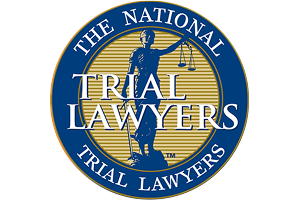Former Cook County Felony Prosecutor
Criminal Trespass
Facing a Criminal Trespass Charge in Chicago? Defense Attorney Andrew M. Weisberg Can Protect Your Future
A charge of criminal trespass in Illinois is more serious than most people realize. What may seem like a simple misunderstanding or minor incident can quickly escalate into a criminal case with lasting consequences. Even a first-time trespass charge can result in jail time, fines, and a permanent criminal record that can affect your employment, housing, and reputation for years to come.
Under today’s stricter prosecution policies in Cook County, criminal trespass cases are being handled more aggressively than in the past. Prosecutors are less willing to offer lenient plea agreements, and judges are increasingly treating these cases as significant violations rather than minor offenses. Situations that once might have been resolved informally are now more likely to result in criminal charges and court proceedings.
If you have been charged with criminal trespass in Chicago or anywhere in Cook County, it is critical to have an experienced criminal defense attorney on your side. Andrew M. Weisberg is a former Cook County prosecutor who understands how these cases are investigated and prosecuted. He uses that experience to build strong defenses designed to protect your freedom and your future.
Early legal representation can make a significant difference in the outcome of a criminal trespass case.
Cook County’s Tougher Approach to Criminal Trespass Cases
In the past, many criminal trespass cases were treated as relatively minor offenses. First-time offenders often received supervision, small fines, or community service. While those outcomes are still possible in some cases, they are no longer guaranteed.
Under the current State’s Attorney administration, prosecutors are pursuing trespass cases more aggressively. This shift has resulted in:
• Fewer plea deals
• Reduced willingness to dismiss cases early
• Tougher plea negotiations
• Greater risk of jail sentences
• More contested hearings and trials
Trespass cases involving homes, apartment buildings, businesses, or government property often receive particularly close attention. Prosecutors may assume that trespass is connected to theft, burglary, or other criminal activity, even when no additional charges are filed.
Because of these changes, individuals charged with criminal trespass should take the case seriously and seek experienced legal representation as early as possible.
Understanding Criminal Trespass Under Illinois Law
Criminal trespass is governed by several Illinois statutes, each covering different types of property. The most commonly charged offense is criminal trespass to real property under 720 ILCS 5/21-3, which occurs when a person knowingly enters or remains on property without permission.
The key element in most trespass cases is whether the entry or presence was knowing and unauthorized. The State must prove that you knew you did not have permission to be there.
Illinois law recognizes several types of criminal trespass.
Criminal Trespass to a Residence – 720 ILCS 5/19-4
Criminal trespass to a residence occurs when a person knowingly enters or remains inside another person’s home without permission.
This offense is typically charged as a Class A misdemeanor. However, it can be elevated to a felony if the entry was intentional and without authority while someone was present in the residence.
These cases often arise from disputes between former partners, roommates, or acquaintances where permission to enter is unclear or contested.
Criminal Trespass to Real Property – 720 ILCS 5/21-3
Criminal trespass to real property involves entering land or property after being told not to enter or after being given notice through posted signs or fencing.
Examples include:
• Entering restricted areas of businesses
• Remaining on property after being asked to leave
• Entering posted private property
• Returning to a location after receiving a trespass warning
This is one of the most common trespass charges filed in Chicago.
Criminal Trespass to a Vehicle – 720 ILCS 5/21-2
Criminal trespass to a vehicle involves entering or using another person’s vehicle without permission.
These cases often arise when someone sits inside a vehicle, uses a vehicle temporarily without permission, or enters a vehicle believing they had authorization.
Although typically charged as a misdemeanor, vehicle trespass cases are often closely scrutinized because prosecutors may suspect attempted theft.
Criminal Trespass to State-Supported Land – 720 ILCS 5/21-5
Trespass to state-supported land involves unauthorized entry onto government property.
Examples include:
• Public transit facilities
• Government buildings
• Public housing properties
• Restricted municipal areas
These cases can carry enhanced penalties and are sometimes prosecuted more aggressively than private-property trespass cases.
Criminal Trespass to a Safe School Zone – 720 ILCS 5/21-5.5
Entering school property without permission can lead to a criminal trespass charge under the safe school zone statute.
School-related trespass cases are often treated seriously because of safety concerns, even when the underlying conduct was minor.
Penalties for Criminal Trespass in Illinois
The penalties for criminal trespass vary depending on the type of property involved and the specific circumstances of the case.
Class B Misdemeanor
Some forms of criminal trespass are charged as Class B misdemeanors, which can result in:
• Up to six months in jail
• Fines up to $1,500
• Court costs and fees
Class A Misdemeanor
Most criminal trespass charges are Class A misdemeanors, which carry:
• Up to 364 days in jail
• Fines up to $2,500
• Probation or conditional discharge
• Community service
Felony Trespass
Certain trespass offenses, particularly criminal trespass to a residence under aggravated circumstances, may be charged as a Class 4 felony.
Felony penalties can include:
• One to three years in prison
• Fines up to $25,000
• Mandatory court assessments
Long-Term Consequences of a Trespass Conviction
Many people underestimate the long-term impact of a trespass conviction. Even a misdemeanor conviction creates a permanent criminal record that can follow you for years.
A conviction may affect:
• Employment opportunities
• Professional licensing
• Housing applications
• Background checks
• Loan applications
• Educational opportunities
Avoiding a permanent conviction is often one of the most important goals in defending a trespass case.
How Andrew M. Weisberg Builds a Strong Defense
Every criminal trespass case is different, and a successful defense requires careful analysis of the facts and evidence.
Andrew M. Weisberg approaches each case with the insight of a former prosecutor and the dedication of an experienced defense attorney.
Possible defense strategies include:
Challenging the Evidence
The prosecution must prove that you knowingly entered or remained on property without permission. If the evidence does not clearly establish intent, the case may be vulnerable to dismissal.
Lack of Notice
Many trespass charges depend on whether the defendant received proper notice not to enter or remain on the property.
If there were no clear warnings or posted signs, the prosecution may struggle to prove the case.
Permission or Reasonable Belief
If you had permission to be on the property, or reasonably believed you had permission, that may be a valid defense.
Trespass charges often arise from misunderstandings rather than intentional wrongdoing.
Mistaken Identity
In crowded areas or public locations, witnesses sometimes misidentify individuals. Andrew carefully reviews witness statements and evidence to identify inconsistencies.
Negotiating Favorable Outcomes
When dismissal is not possible, Andrew works to secure outcomes that protect your record whenever possible, including:
• Supervision agreements
• Reduced charges
• Deferred prosecution
• Alternative sentencing
Why Clients Choose Andrew M. Weisberg
Clients facing criminal trespass charges turn to Andrew M. Weisberg because of his experience, preparation, and commitment to achieving the best possible results.
He offers:
• Former Cook County prosecutor experience
• Nearly three decades of criminal law experience
• Strategic and aggressive defense
• Direct communication with clients
• Thorough case preparation
• Strong negotiation skills
• Extensive courtroom experience
Andrew personally handles every case and works closely with clients throughout the process.
Frequently Asked Questions About Criminal Trespass in Illinois
What is criminal trespass under Illinois law?
Criminal trespass occurs when a person knowingly enters or remains on someone else’s property without permission. Illinois recognizes several forms of trespass, including trespass to real property, trespass to a residence, and trespass to a vehicle. The specific statute and penalties depend on the type of property involved and the circumstances of the offense.
Is criminal trespass a misdemeanor or a felony?
Most criminal trespass offenses are Class A or Class B misdemeanors. However, criminal trespass to a residence is a Class A misdemeanor or a Class 4 felony if the entry was intentional and without authority. Trespass to state-supported land and trespass to vehicles are typically misdemeanors but still carry serious consequences.
What are the penalties for a criminal trespass conviction?
Penalties vary by type of trespass but can include up to 364 days in jail for a Class A misdemeanor, fines up to $2,500, probation, community service, and a permanent criminal record. A Class 4 felony for trespass to a residence may result in one to three years in prison.
Can I be charged with trespass even if I didn’t break in?
Yes. Unlike burglary, trespass does not require forced entry or intent to commit a further crime. Simply entering or remaining on property without permission—even if a door was unlocked—can result in a trespass charge.
What if I thought I had permission to be there?
A reasonable belief that you had permission can be a valid defense. Trespass requires that the entry be knowing, so misunderstandings, miscommunications, or unclear boundaries may weaken the prosecution’s case.
Can I be arrested for refusing to leave a business or public place?
Yes. If an owner, employee, or authorized agent asks you to leave and you refuse, you can be charged with trespass—even in a business open to the public. Once you’re asked to leave, remaining on the premises becomes unlawful.
Is criminal trespass the same as burglary?
No. Trespass involves unauthorized entry. Burglary requires unauthorized entry with intent to commit a theft or felony inside. Many people accused of trespass worry they will face burglary charges, but the offenses are legally distinct.
Can a trespass charge be expunged or sealed?
If the case is dismissed, supervision is completed successfully, or you are found not guilty, the trespass record may be eligible for expungement. A conviction for criminal trespass may be eligible for sealing depending on the specific offense. Sealing is often possible for misdemeanor trespass, but not for all felony offenses.
What are common defenses to a trespass charge?
Defenses may include lack of knowing entry, mistaken identity, unclear property lines, permission from the owner, or lack of proper notice to leave. Constitutional issues such as unlawful arrest or improper search may also form part of the defense.
Do I need an attorney for a criminal trespass case?
Yes. Even misdemeanor trespass charges can lead to jail time and a permanent record that affects employment and housing. An attorney can protect your rights, negotiate for dismissal or reduction, and uncover weaknesses in the prosecution’s case.
Take Action Now – Call for a Free Consultation
With Cook County prosecutors taking a tougher stance on criminal trespass cases, you cannot afford to face the system alone. A conviction can have lifelong consequences, but a strong defense can make all the difference.
Call (773) 908-9811 today for a free and confidential consultation or submit a Case Review form through the website.
Your future is too important to risk without experienced legal representation.




















